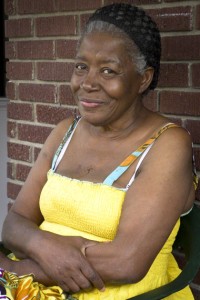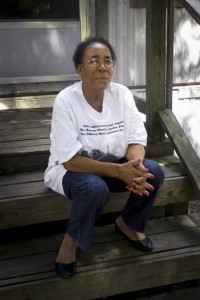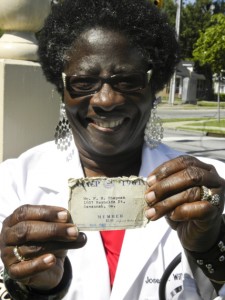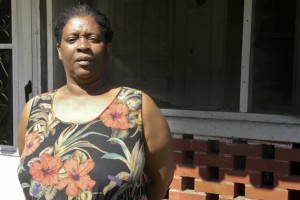The state is locked in a federal court battle with the U.S. Department of Justice over the South Carolina voter ID law, which would require voters to present government-issued photo identification at the polls.
Four South Carolina women shared their experiences in obtaining the necessary documents to apply for photo identification.
Brenda Williams
Brenda Williams carries in her wallet her father’s
NAACP card – a constant
reminder that, 51 years after it was issued for a $2
membership fee, the fight for equal
access to the polls continues.
For three decades, Williams and her husband, Joe, have helped register voters in Sumter, S.C. She estimates she has spent thousands of dollars and countless hours assisting low-income voters – the majority of whom are African-American – obtain the necessary documents to gain a government-issued photo ID.

Donna Dubose, a Sumter resident, lived most of her life with an incorrect birth certificate. Photo by Caitlin O'Donnell/News21
Donna Dubose
Many elderly voters in rural South Carolina were delivered by midwives who were not bound by state regulation when recording births.
Donna Dubose, a Sumter resident, was listed as “Baby Girl Kennedy” on her birth certificate until this year, when she obtained a corrected document, with the help of a local judge.
“Man makes wonders, but God works miracles and
when he makes miracles, you don’t even know how to
take it,” she said, describing her effort to obtain
the
documents.
Naomi Gordon
Naomi Gordon also fell victim to a midwife’s mistake. On her South Carolina birth certificate, her first name is spelled Lnnoi. She worked independently for years to correct her birth certificate and obtain a photo ID, until she could no longer afford it and sought help from Brenda Williams. A lifelong voter, Gordon said the sudden obstacle is disheartening.
“Sometimes it’s hurting because you have that
right and all of a sudden all this is coming
about,” she said.

Thelma Hodge spent five years trying to obtain a birth certificate. Photo by Caitlin O'Donnell/News21
Thelma Hodge
After five years of obstacles, Thelma Hodge just
recently received a copy of her birth
certificate. Hodge estimated that she spent at least
$1,000 for it.
Hodge felt that a weight has been lifted from her shoulders, she said, and she now feels like a real person with an unquestioned identity.
“When you don’t have those things as a person, it makes you feel left out when other people have theirs,” she said. “It feels real good.”
By Caitlin O’Donnell, News21


